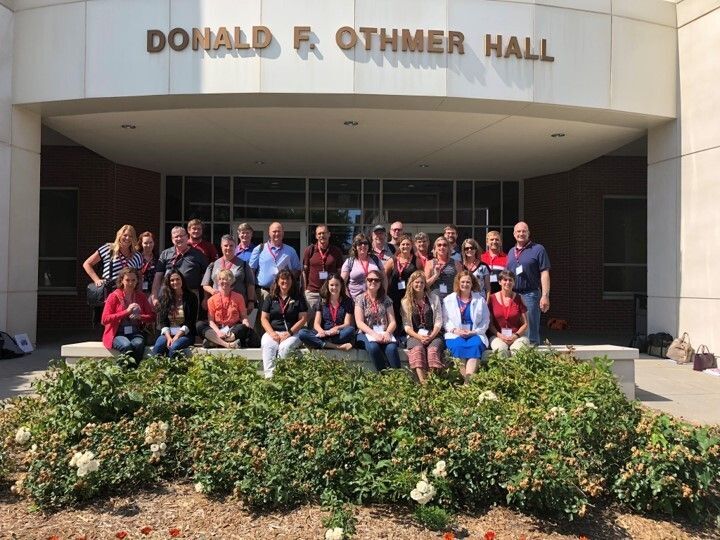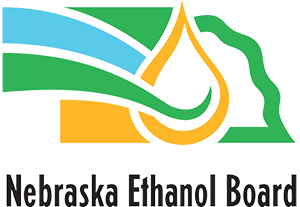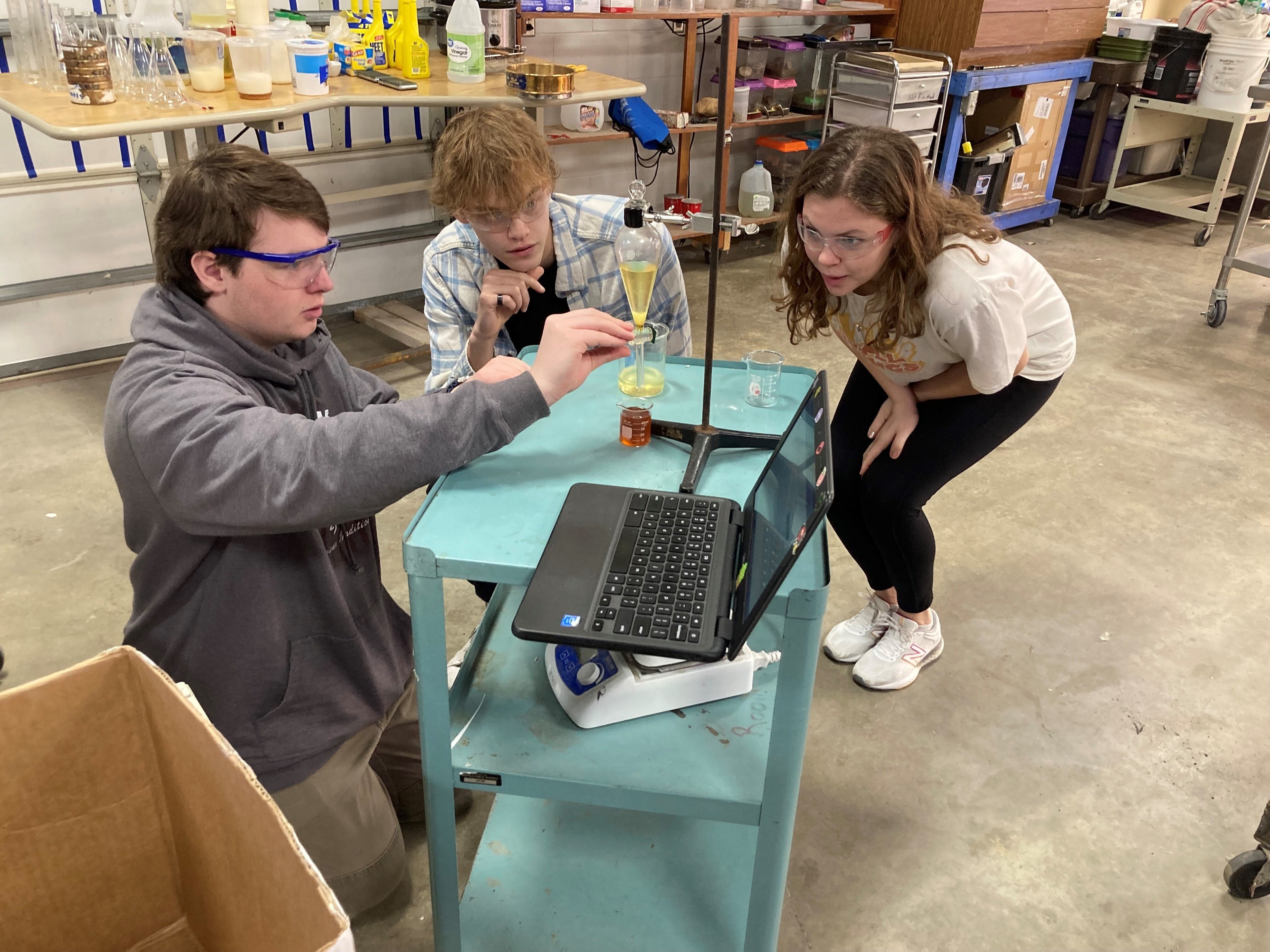Younger children love to learn about the differences in corn and might even like to grow their own. Satisfy their curiousities by teaching them how corn can make cars go and airplanes fly. Middle school children might be interested to know more about protecting the earth by reducing air pollution or finding renewable ways to create energy instead of relying on fossil fuels. Older children, especially those learning to drive, can choose to fill up with ethanol to save money and support the economy. Others might be interested in a career in biofuels or sustainability. Check out the abundant resources available for educators to introduce biofuels to your students.
Nebraska Specific Classroom Resources
Renewable Fuels Month (held in May)
May is typically the kick-off to the summer driving season and has historically been a time Nebraska’s renewable fuels industries have come together to highlight the importance of clean-burning biofuel options. This is sponsored by Fueled by Nebraska (a collaboration of the Nebraska Ethanol Board, the Nebraska Corn Board, and Renewable Fuels Nebraska) and the Nebraska Soybean Board.
*Educators, during Renewable Fuels Month, share your classroom’s experience learning about biofuels for a chance to win $500 for your classroom.
Fuel the Cure (held in October)
Fuel the Cure educates Nebraskans about healthier fuel options for everyone. It brings together fuel retailers, ethanol producers, and the community to raise money for cancer research. In doing so, we’ve learned more about the link to cancer and aromatic exposure from chemicals in gasoline.
Nebraska Agriculture in the Classroom
Nebraska Agriculture in the Classroom (AITC) is a statewide program that helps K-12 students and teachers develop an awareness and understanding that agriculture is their source of life’s necessities. AITC has a long history of creating resources tied to state education standards to assist teachers in connecting their students to their source of food, fiber, and fuel – agriculture!
Agriculture in the Classroom® is supported by the National Agriculture in the Classroom Organization. In Nebraska, the Agriculture in the Classroom program is managed by the Nebraska Farm Bureau Foundation, whose mission is to engage youth, educators, and the general public to promote an understanding of the vital importance of agriculture in the lives of all Nebraskans. Here are some of highlights of what they offer to educators for free!
- The Agricultural Literacy Curriculum Matrix allows educators to search for specific topics. Search for ethanol or check out these ethanol-specific lesson plans.
- Bring agriculture alive in the classroom with these Make & Take activities. Check out the Baseball Charm and Cornhusker Necklace for ideas on teaching about ethanol.
- The Ag Pen Pal Program connects farmers and ranchers with classrooms to help students understand where their food, fiber, and fuel comes from.
- Kindergarten – fifth grade classrooms are invited to participate in lessons with an education specialist to learn more about Nebraska agriculture!
- Touring a farm, visiting an ethanol plant, checking out a race track? These are ALL great ways to learn about ethanol and how it supports Nebraska. K-8 grade teachers can apply to receive up to $700 in transportation funding through the Nebraska Farm Bureau Foundation.
- Teacher toolkits for grades K-5.
The Nebraska Farm Bureau Foundation also hosts the Making the Connection Conference for educators. It is held every other year. Farmers, ranchers, educators, and professionals are encouraged to attend this one-day conference to gain tools and knowledge to help students and consumers understand how agriculture impacts their everyday life.
For more information, reach out to Courtney Shreve, senior director of outreach education at Nebraska Farm Bureau Foundation.
Nebraska Department of Education
Ethanol-related lesson plans
- Climate Smart Agriculture, presented by Tallgrass Leading Energy Solutions
- Ethanol resources: Nebraska Ethanol Board
- Ethanol in the Classroom
Search the Open Educational Resources (OER), a source for sharing high quality resources aligned to Nebraska State Standards.
For more information, reach out to Stacie Turnbull, Agriculture, Food and Natural Resources (AFNR) career field specialist and state director of agricultural education.
Little Steps, Cleaner Air Curriculum
The Nebraska Ethanol Board is also a participating member and supporter of Little Steps, Cleaner Air – an initiative in Greater Omaha that educates the community about small steps they can make to improve air quality. They worked with local educators to develop curriculum focused on air quality and their website is full of great information to use in your classroom. They also have an opportunity for everyone to Take the Pledge to commit to championing cleaner air.
Click here for other states air pollution clean air educational resources
Ethanol Training for Educators
A one-day STEM workshop, hosted at the University of Nebraska-Lincoln's city campus, gives secondary educators insight into how chemical engineering problems are approached and solved by applying math and science principles. The theme for 2023 was ethanol production. Educators attending the workshop used math, chemistry, and physics to solve problems, perform experiments, make measurements, and analyze data - activities that could be appropriate to incorporate into high school level math and science courses.
Hunter Flodman, Nebraska Ethanol Board technical advisor and associate professor of practice in chemical and bimolecular engineering at UNL, created and teaches the course to develop and maintain relationships with high school STEM teachers in the state of Nebraska, grow awareness of opportunities for engineering careers utilizing math, chemistry, and physics, particularly chemical engineering, and to build a recruiting network through high school STEM teachers for the College of Engineering.
Are you an educator interested in participating? Registration information is available here or reach out to Dr. Flodman directly.

National Ethanol Classroom Resources
Our national ethanol organizations (Renewable Fuels Association, Growth Energy, and American Coalition for Ethanol) have made available lesson plans, activities, and videos on their websites to use in your classrooms.
American Coalition for Ethanol has collected content from industry experts, including a video library, hands on learning, lesson plans, career exploration, and more. Find it here.
Growth Energy, in partnership with the National Association of Agricultural Educators (NAAE), has developed a one-of-a-kind biofuels curriculum aimed at educating high school students to the world of biofuels. The curriculum is the first industry-supported biofuels curriculum that provides students a guided in-classroom experience and will offer ag educators the tools needed to provide students with an array of technical skills and historical knowledge in biofuels. Learn more at Classroom Resources.
In 2018, Renewable Fuels Association developed “Ethanol in the Classroom,” which is a great resource for teachers educating on ethanol. Check out the interactive learning activities at Ethanol in the Classroom.
Nourish the Future
Middle school and high school teachers are part of a national leadership community, working to advance their expertise in the classroom and increase their influence as teacher leaders and mentors across the country—all while exploring solutions to real-world problems and the connection between science and future careers.
Shout out to Nebraska educator’s, AnnaLisa Estrela and Kristi Bundy, of Ashland Greenwood Public School in Gretna, for your roles in the 2021 Nourish the Future community.
Just a Minute (or So) About Renewable Fuels
In January 2021, Advanced Biofuels USA launched a series of short educational videos centered around renewable fuels. Learn about topics like the wide range of things that can be used to make renewable fuels; making chemicals, including fuels, from waste CO2; retrofitting an old car to use E85 (85% renewable fuel); the historical, everyday and future uses of renewable fuels; and, the latest in the series, diving deeper into the benefits of renewable fuels.
Just a Minute (or So) About Renewable Fuels videos
In addition to the YouTube videos, a page in the Advanced Biofuels USA online library includes links to additional resources and reference materials. Many more episodes are planned. Suggestions for topics are welcome at info@AdvancedBiofuelsUSA.org. Started by people working in the world of renewable fuels and chemicals, the series is now created and managed by student volunteers.
Great Lakes Bioenergy Research Center is a U.S. Department of Energy-funded Bioenergy Research Center led by the University of Wisconsin–Madison. They offer a Life Cycle Assessment of Biofuels 101 lesson plan.
Explore student and teacher resources available from the National Renewable Energy Laboratory (NREL), a U.S. Department of Energy-funded Bioenergy Research Center.
The Bioenergy Research and Education Bridge Program (BRIDGES) is a case study-based education curriculum created by the U.S. Department of Energy (DOE) Bioenergy Technologies Office (BETO) in partnership with Argonne National Laboratory (ANL) and Idaho National Laboratory (INL) as well as education, community, industry, and other government partners.

